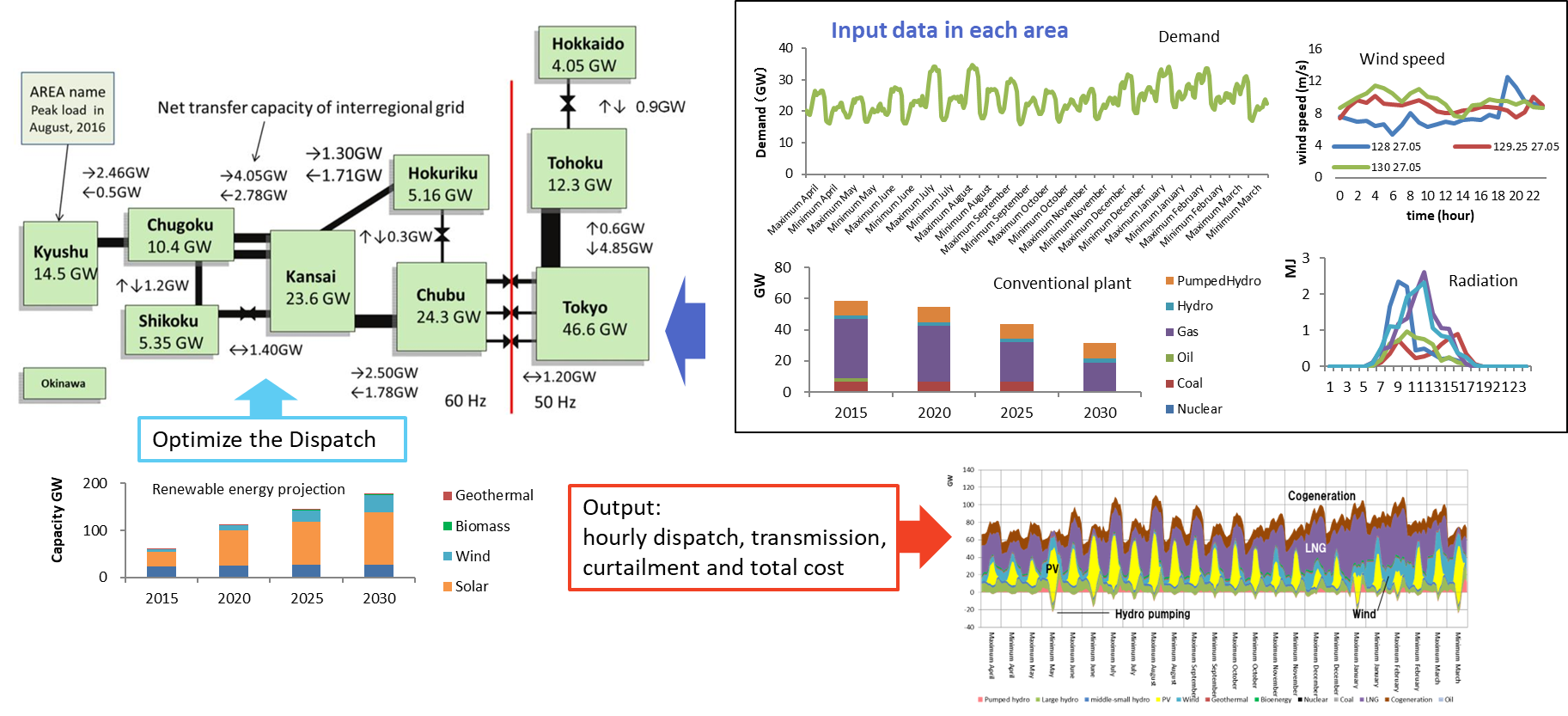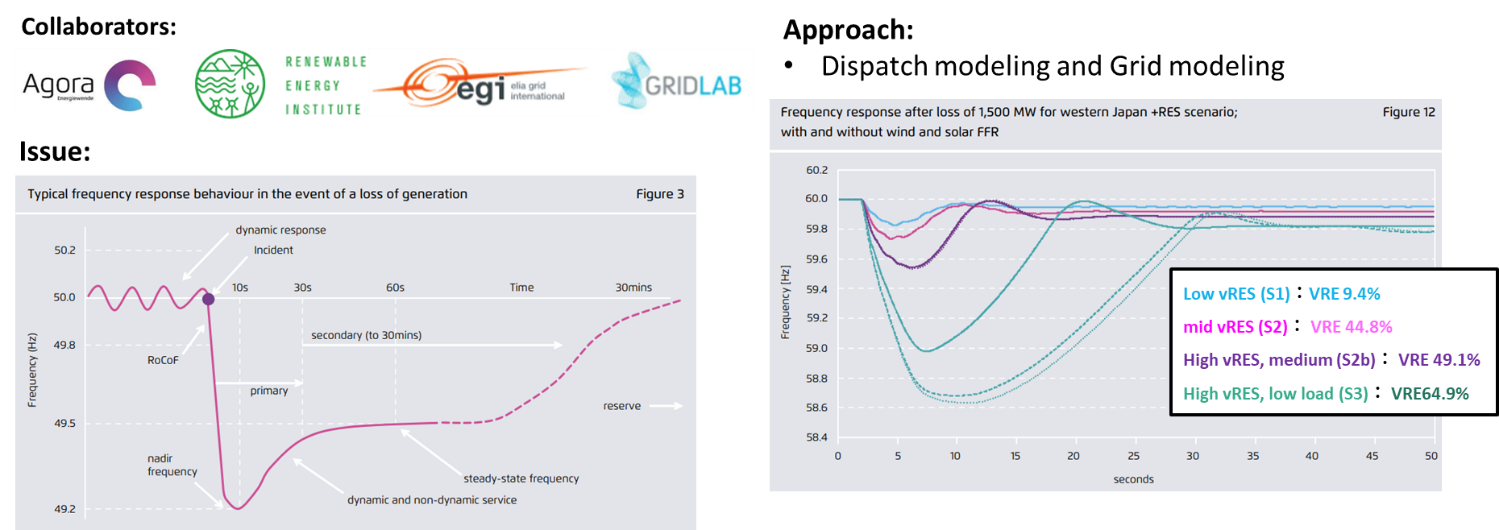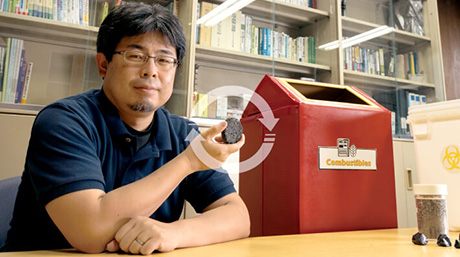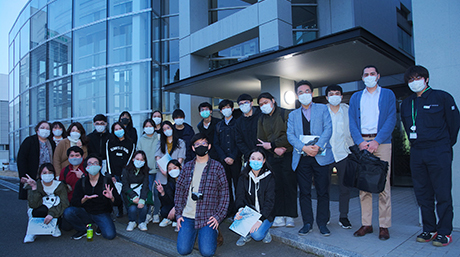Transdisciplinary Science and Engineering News
Labs spotlight #22 - Wakeyama laboratory -
Delineate the pathway toward for 100% renewable energy system
This "Spotlight" series features a laboratory from the Department and introduces you to the laboratory's research projects and outcomes. This time we focus on Wakeyama laboratory.

Energy Science and Engineering Graduate Major
Laboratory:Ookayama Campus South 6 Building Room 217
Tatsuya Wakeyama![]() , associate professor
, associate professor
Member:1 doctoral course student
| Areas of Research | Energy policy / Electricity system / Geothermal energy |
|---|---|
| Keywords | Renewable energy / Electricity system model / Policy alignments / local consensus building |
| Website | Wakeyama laboratory |
Summary
- Students’ research topics are selected based on their interest and problem recognition in realizing a 100% renewable energy power system.
- The goal is for students to acquire an academic understanding of the research topics and methods and to deepen their knowledge of the issues involved in building a decarbonized society.
- We conduct joint research with domestic and international think tanks and electric power companies.
Research interests
Electricity model analysis
We conduct a model analysis of the energy scenario with the high integration of renewables for 2030 to 2050 using GIS, capacity expansion, economic dispatch, unit commitment, market, and grid models. The model utilizing various data such as electricity supply and demand and geographic information enables us to analyze the cost of electricity, the ratio of renewable energy and the amount of curtailment, and the impact on the electricity market, the electricity system, and land use.
Building Local Consensus on Renewable Energy Use
Natural resources are finite resources shared by humanity and society. Unfortunately, natural resources are often at risk of being damaged by the immoral actions of individuals. E. Ostrom identified regional self-management as a way to avoid the tragedy of resource depletion and laid out the conditions for making it work. E. Ostrom also noted that there are limits to resource protection through regulation. However, new resource management and consensus building may be possible in the future through new technologies. We research sustainable resource management and future regional consensus building through new technologies and mathematical sociological institutional design in the study field of geothermal power plants in Japan and Kenya.
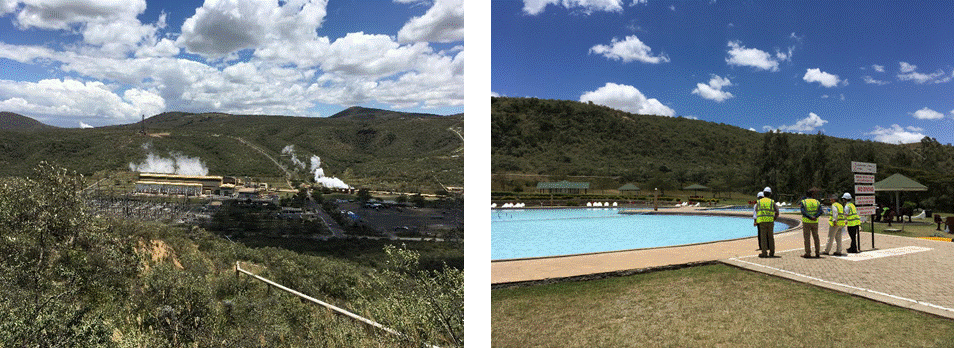
A heated swimming pool near Olkaria II geothermal power plant
Study on Social Implementation of Environmental and Energy Technologies
Renewable energy, storage batteries, and hydrogen fuel technologies are necessary for building a decarbonized society, but they are still relatively costly and challenging to expand their diffusion. However, one of the barriers to the social implementation of such new technologies sometimes is policies prepared for conventional technologies. For example, it has become clear that grid access rights secured on a first-come, first-served basis by conventional power sources have prevented more efficient grid operation. Our laboratory identifies critical policies to promote the social implementation of new technologies through model analysis and policy research(e.g., book [1]).

Transformation of grid management to market-based management from first-come, first-served
A Study of Future Energy Systems
In a future energy system dominated by renewable energy with zero marginal cost, there will be many prosumers on the grid. As a result, it expects new trading, supply and demand, settlement, and energy consumption. We delineate the pathway for the future by an interdisciplinary approach using engineering, economics, computer science, artificial intelligence, and mathematical sociology.
Research results / research details
Grid Stability Analysis for 2030
The challenge to expanding variable renewable energies such as solar PV and wind power will be to secure flexibility. A thermal power generator has been a primary source of flexibility. In this study, we constructed a grid model for the year 2030 with a high share of variable renewable energy and analyzed the impact on grid frequency in case large-scale power sources drop out. The analysis results revealed the effects of capping the instantaneous supply ratio of renewable energy to reduce the risk of blackouts. We have jointly conducted this research with domestic and international policy think tanks and grid operators(Paper [1]).
Electricity Market Model Analysis
Expanding solar PV and wind power with zero fuel costs will decrease electricity market prices. This study uses an electricity market model considering power system constraints to evaluate supply, demand, and short-term marginal cost prices in each area. The short-term marginal cost price is the main factor determining the day-ahead spot market price. Therefore, the model can analyze the prospect of business profitability of generation and storage by evaluating short-term marginal cost prices. This research collaborates with domestic think tanks and power generation companies(Paper [2]).

Comparison of electricity day-ahead market price (gray) and short-term marginal cost model calculations (black)(October 2018 hourly, Kyushu area)
International transmission Line Analysis
In Europe and North America, international power grids have been constructed to make more economical and stable use of electricity. In recent years, expanding international power grids has also been considered a measure to utilize renewable energy more cheaply, in larger quantities, and without waste. In this study, we constructed an electricity market model connecting Japan and South Korea and analyzed the benefits of building an international transmission line between the two countries. We found that the expected benefits can vary depending on which point the international power grid is connected, such as Kyushu or the Chugoku region(Paper [3]).
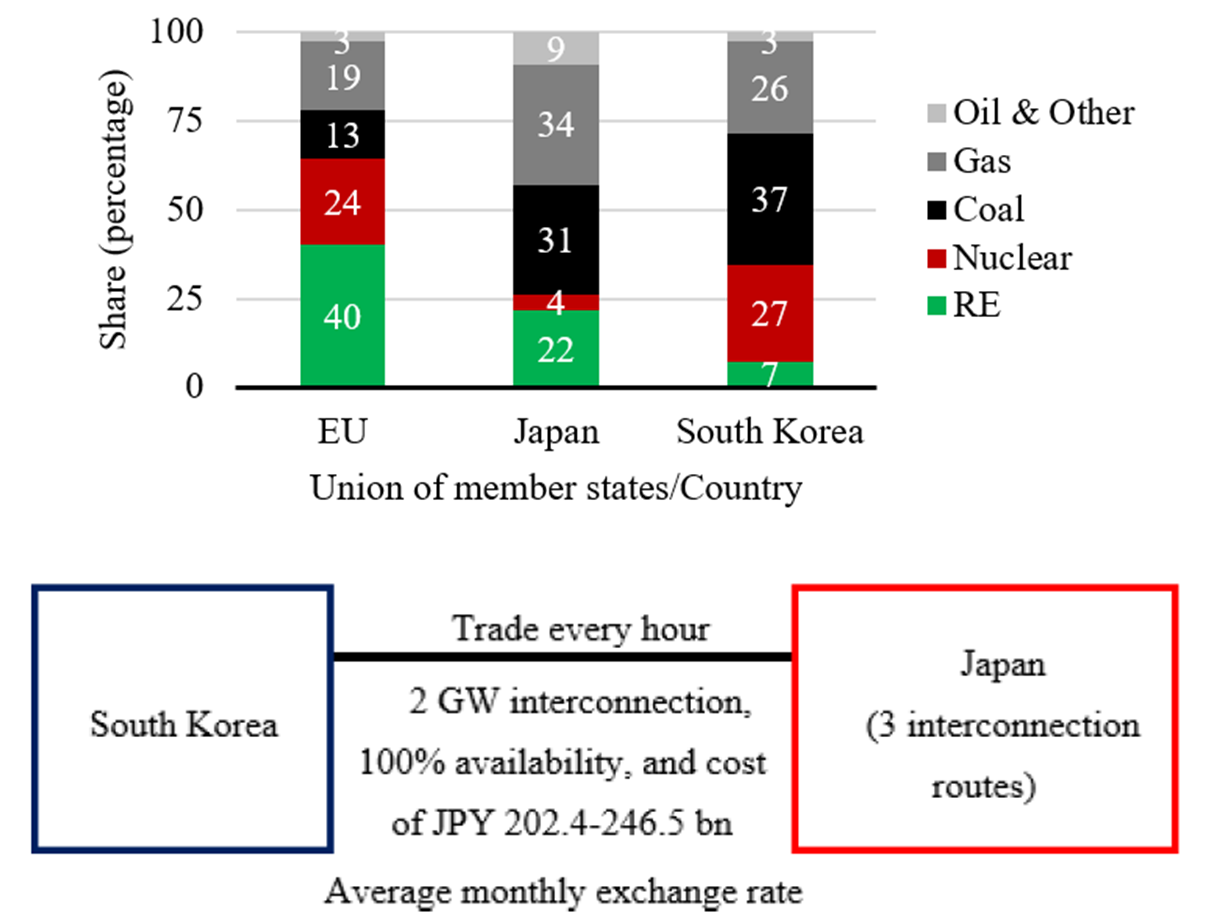
Japan and Korea generation structure and international transmission line concept
Publication list
Representative paper:
-
[1] Kuwahata, R., Merk, P., Wakeyama, T., Pescia, D., Rabe, S., & Ichimura, S. (2020). "Renewables integration grid study for the 2030 Japanese power system." IET Renewable Power Generation, 14(8), 1249-1258. DOI: https://doi.org/10.1049/iet-rpg.2019.0711

-
[2] Tatsuya Wakeyama, Ko Setoguchi, Romain Zissler and Keiji Kimura (2020) "The Impact of Renewable Energy Expansion on Power Exchange Prices in Japan", Proceedings of 10th Solar & Storage Integration Workshop 2020(国際会議プロシーディング)

-
[3] Romain Zissler, Tatsuya Wakeyama and Jeffrey S. Cross (2021) "International electrical interconnection to unlock solar photovoltaic potential and accelerate progress towards carbon neutrality in Japan and South Korea"
 , Proceedings of Renewable Energy Grid Integration Week 2021(国際会議プロシーディング)
, Proceedings of Renewable Energy Grid Integration Week 2021(国際会議プロシーディング)
Major Publications:
-
[1] 分山達也、自然エネルギーの導入拡大に向けた系統運用―日本と欧州の比較から―、自然エネルギー財団報告書、2016年3月 https://www.renewable-ei.org/activities/reports_20160303.php

- [2] 馬奈木 俊介, 尾沼 広基, 藤田 敏之, 板岡 健之, 原田 達朗, 岡田 重人, 島谷 幸宏, 村川 友美, 柿本 浩一, 西澤 伸一, 矢部 光保, 村田 純一, 分山 達也, エネルギーの未来 脱・炭素エネルギーに向けて, 中央経済社, 2019.03 ISBN:9784502285219
-
[3] 丸山 康司、分山 達也、古屋 将太、尾形 清一、島田 泰夫、本巣 芽美、松田 裕之、西城戸 誠、門畑 明希子、飯田 誠、再生可能エネルギーのリスクとガバナンス、ミネルヴァ書房、2015年10月
ISBN : 9784623073733
About reseracher and lab
- From Associate Professor Tatsuya Wakeyama
Our laboratory started in 2022. As this is still a small, new laboratory, you can quickly meet with a faculty advisor in person or online. The faculty advisor has experience working on various aspects of expanding the introduction of renewable energy, such as studying energy policies as a researcher and supporting local governments as a consultant. There are still many challenges to overcome to build a decarbonized society. However, we can find opportunities to solve problems through model analysis and policy research. We welcome you to join us in working together to solve these problems, with the overarching goal of "delineating the pathway toward for 100% renewable energy power system."
※Find more about the lab and the latest activities at the lab. site![]() .
.
※November 22, 2022 14:45 The link to the laboratory's website has been revised in accordance with the change of the laboratory's URL.
-
-
- Department of Architecture
and Building Engineering - Department of Civil
and Environmental Engineering - Department of Transdisciplinary
Science and Engineering - Department of Social
and Human Sciences - Department of Technology and Innovation Management Professional master's degree program /Department of Innovation Science
- Department of Architecture
